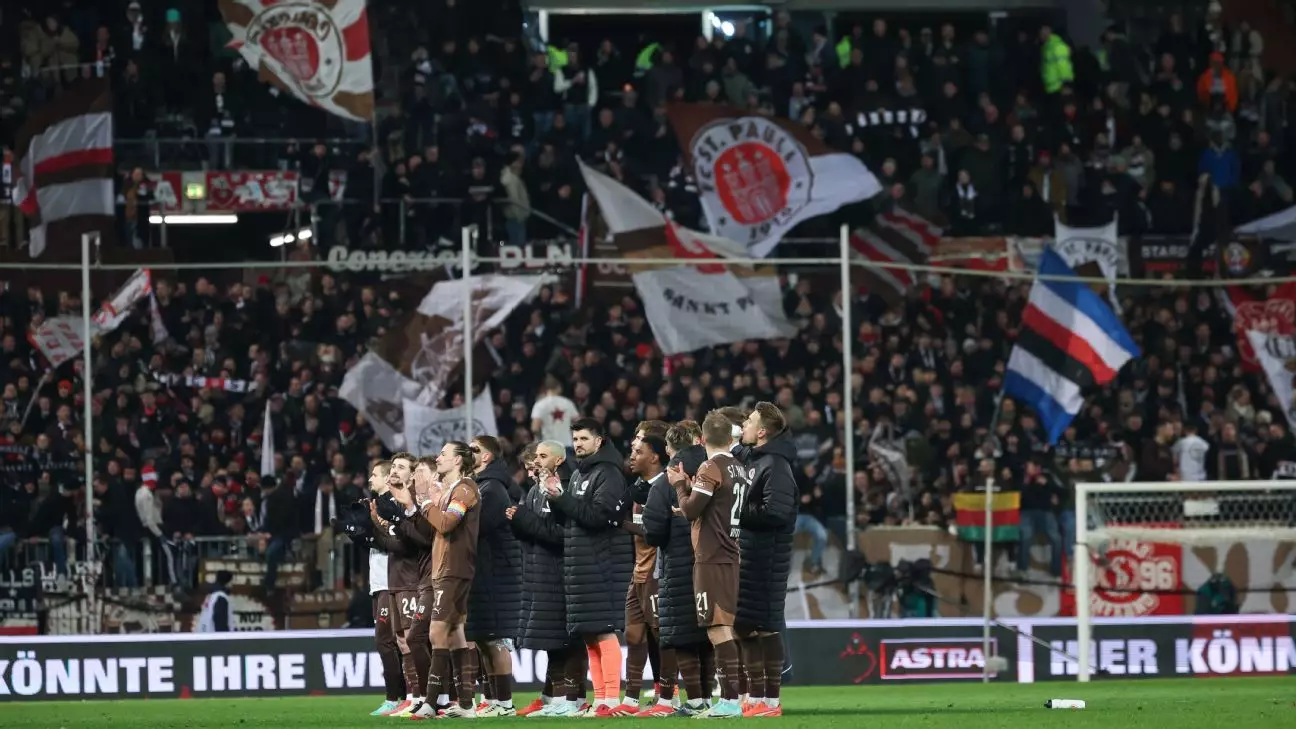The world of professional sports has always been a battleground of wealth and corporate interests, often sidelining the very lifeblood of these institutions—the fans. Yet, in an inspiring twist, FC St. Pauli has championed a radical shift in this paradigm. The Bundesliga club’s initiative to create Germany’s first fan cooperative is not just a milestone for St. Pauli but an exhilarating beacon of community-driven power in professional football. Raising over $29.1 million (€27 million) through the engagement of more than 21,000 devoted supporters to purchase shares in the Millerntor Stadium exemplifies a remarkable commitment to collective ownership.
Unity in Purpose: A Collective Effort
This cooperative venture is a testament to the unyielding spirit of St. Pauli’s supporters. In the final hours of a five-month subscription period, a surge of enthusiasm propelled thousands to invest $917 (€850) each, showcasing a profound connection between the fans and their club. The added incentives—ranging from dinners with players to signed jerseys—thrilled supporters and elevated the sense of participation. This enthusiastic turnout indicates that fans aren’t just consumers; they desire an active role in the stewardship of their beloved club. This dynamic underlines a significant cultural shift where fans recognized the necessity of taking agency over the operations of their team, intentionally moving toward a more sustainable model of ownership.
A Financial Lifeline for the Club
Commercial director Wilken Engelbracht’s optimism about the cooperative’s potential is well-founded. By seizing control of the stadium, St. Pauli not only alleviates financial burdens but also establishes room for growth and long-term stability. This cooperative model mirrors innovative approaches used successfully in other leagues, emphasizing that clubs can thrive under the stewardship of their supporters. As Bundesliga matchday revenues soar, fan-owned entities can capitalize on these profits, funneling them back into enhancing player development and community programs, thus perpetuating a virtuous cycle.
Legacy and Future Prospects
The supporters’ rallying cry reflects an unwavering commitment to the club’s ethos, ensuring its values are preserved amid the pressures of commercialism. It’s a bold statement at a time when the sport is increasingly at risk of losing its connection to the communities it serves. This initiative not only mitigates financial exposure but serves as a crucial demonstration of solidarity among fans, players, and the club itself. Moreover, the presence of notable figures, such as Bayern Munich’s Uli Hoeness, emphasizes the potential for collaboration across rival clubs to nurture community ties.
The Path Forward
Looking ahead, St. Pauli has positioned itself to capitalize on the momentum gained from this initiative as they strive for survival in a fiercely competitive league. Club president Oke Göttlich’s aspiration to leverage this community investment to bolster their Bundesliga standing echoes deep-rooted ambitions shared by countless fans. Ultimately, the success of this endeavor could set a precedent, encouraging other clubs to rethink their ownership structures and embrace fan engagement as a fundamental aspect of their operational strategy. In a world where financial leverage often trumps loyalty, FC St. Pauli illustrates how the heart of football can beat strongest when fans take control of their narratives.

Leave a Reply